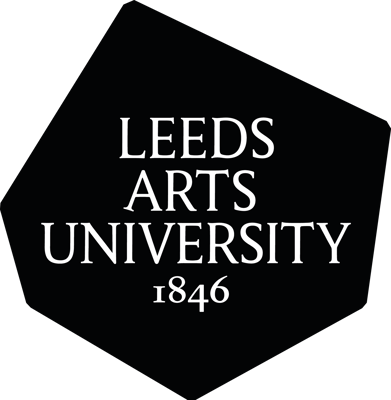Research Tuesdays
Research Tuesdays is a programme of events based on a constructivist approach to learning where communities of practice are developed between new members of staff and more experienced researchers. Events are designed to showcase the creative practice of academics who may not have previously encountered research in an arts university. This intervention has led to emerging practice-based researchers becoming more confident in starting up interest groups that have created group exhibitions, symposia and publications.

What kind of an organisation are you in the context of the Concordat?
A small specialist institution and a member of GuildHE/Research. REF 2021 was Leeds Arts University's first submission to a research assessment exercise and so has not previously received Quality-related research funding (QR).
What challenge were you trying to address with this initiative?
This initiative was designed to introduce new members of academic staff to the wider research community. Some teaching and research staff have creative industry backgrounds and or have experience in teaching within further or higher education but have not yet developed a research profile. Most if not all teaching/research staff have a creative practice that potentially can be the basis of their practice-based research.
What did you do and how does this align with the Principles and keywords you have selected below?
Induction and research identity
The Head of Research is informed of new academic staff and organises an induction to research with each new staff member. As part of that initial conversation the Head of Research discusses their previous experience in research and or their creative practice. Very often the inductee has previously exhibited or published at least one creative artefact, but does not necessarily frame this as research. The induction is the first opportunity to explore how creative practice can be framed as research.
Training
The new member of staff is encouraged to take part in 'Research Tuesdays'. The aim is to host participatory sessions where experienced and inexperienced members of staff disseminate their work and receive constructive feedback from their peers. The programme comprises dissemination sessions and training in topics such as research impact, research integrity and ethics, and open access.
Research Tuesdays can be run on line and in person. Those with creative practices who do not necessarily see themselves as researchers are welcomed and are able to present their work along side those more experienced researchers.
Career progression and professional development
'Research Tuesdays' provides new inexperienced practice-based researchers with an opportunity to learn professional research-orientated skills and creates a safe space to practice them. Their creatives practices can be the basis of an emerging research profile. Often people are learning about the aspects of research practice that they have not encountered before.
With growing confidence and experience, new practice-based researchers are able to position their work towards external research forums that may be different to the audiences they have previously engaged with. A developing research profile enables the new researcher to apply for senior lecturer and course leader roles which may have otherwise been out of their reach.
Researcher Identity and Research Culture
This is a constructivist approach to research development, where communities of practice are encouraged. Research Tuesdays initiate newcomers into the research culture where they are supported and encouraged by those who have more experience. The inclusion of creatives with emerging practices enriches and on occasion changes the research culture.
What were the challenges in implementation and how did you resolve them?
The challenges in delivering Research Tuesdays were to do with accessibility. Most of the University's researchers also have a teaching commitment so the timing of the sessions needed to be after the majority of teaching has finished. Yet not too late for those who had caring commitments or needed to travel home on public transport. We would therefore recommend the timing to be 4.30pm.
Although at the moment they are called Research Tuesdays the programme has been moved around the week to suit what is going on in the wider University context.
How did you evaluate the impact of your initiative?
Research
Tuesdays are evaluated by the number of attendees and feedback from the
attendees. The comments from people who were not able to attend are also
collated. This information is collated by the Research Co-ordinator and
reviewed by the Research Team (Head of Research, Research Co-ordinator and
Research Fellow). The next programmes are modified in light of the review.
Research Tuesdays are reported on through the Annual Research Report and the
Research Committee.
Were there any surprising or unexpected consequences?
Research Tuesdays were catalysts for other research groups where people met together based on shared interests. This has led to group exhibitions, symposia and even a publication.
Research Tuesdays have also enabled staff from very different parts of the University (such as visual arts, film or music) to discover unexpected common themes and common research interests.
What advice would you give others wanting to do this?
Many institutions will run similar programmes and encounter similar issues. The focus of this particular example has been the repositioning of a creative practice into emerging practice-based research. So the advice would be to find out as much as possible about the experience and work of new academics at the first induction meeting. Secondly, to enable someone who may be very new to research to share their creative practice with others - so newcomers and experienced researchers can begin to have meaningful conversations.
Beneficiaries: Research staff Research and teaching staff Managers of researchers
Stakeholders: Researchers Managers of researchers
Concordat principles: Environment and culture Professional and career development
Keywords: Training Professional development Constructivist scaffolding creative practice practiced-based research Research culture Induction Career progression Research identity
